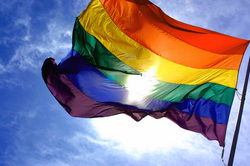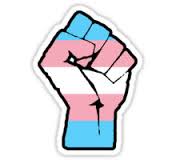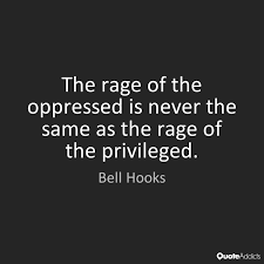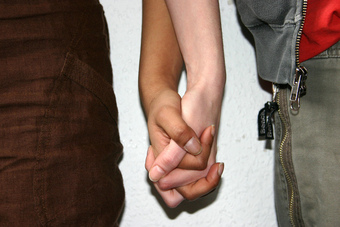Queer, LGBTQIA Affirming Therapy in Los Angeles

Often times I hear people say that LGBTQIA acceptance is "better than in years past." And while that may be true, homophobia, transmisogyny and a heteronormative culture is still part of our society. In fact given our political climate there is now more fear in our community which can significantly impact mental health. Discrimination against LGBTQIA individuals is still legal in many states and institutionalized in many of our laws. In fact we are fighting for some basic rights again.
These systems of oppression can create or exacerbate mental health issues such as depression, anxiety, low self esteem, and PTSD.
When we look at the intersectional identities of many of the folx in the Queer community, the impact of oppressive systems becomes greater. QTPoC individuals face not only homophobia and/or transmisogyny but racism and colorism. These intersecting identities need to be understood in manners that are affirming, for this reason it is crucial to work with a mental health therapist that has an understanding of the multi layers of identities especially for QTPoC.
Whether you are still "in the closet," have been "out of the closet" or never even stepped into a closet, it is important to recognize the impact that homophobia, hetrosexism, cissexism and other oppressive systems has had and has on your life. Working with a therapist that is Queer is not just working with a therapist that is "LGBT friendly" or "gay friendly"- it is working with a therapist that truly understands the various aspects of the Queer community. I draw on my work of many years working with the queer, lesbian, bisexual, gay, pansexual, and transgender community.
Whatever you are struggling with, working with a Queer mental health therapist can feel safer. So whether you are coming in to therapy to work on your relationship, to deal with work stress or to work through feelings of being LGBTQIA working with a therapist that is Queer allows you the space to feel understood and holding that no matter what issue you are working on you are working in a space that is mindful of the impact systems of oppressions have on our lives.
©Melissa Lopez
These systems of oppression can create or exacerbate mental health issues such as depression, anxiety, low self esteem, and PTSD.
When we look at the intersectional identities of many of the folx in the Queer community, the impact of oppressive systems becomes greater. QTPoC individuals face not only homophobia and/or transmisogyny but racism and colorism. These intersecting identities need to be understood in manners that are affirming, for this reason it is crucial to work with a mental health therapist that has an understanding of the multi layers of identities especially for QTPoC.
Whether you are still "in the closet," have been "out of the closet" or never even stepped into a closet, it is important to recognize the impact that homophobia, hetrosexism, cissexism and other oppressive systems has had and has on your life. Working with a therapist that is Queer is not just working with a therapist that is "LGBT friendly" or "gay friendly"- it is working with a therapist that truly understands the various aspects of the Queer community. I draw on my work of many years working with the queer, lesbian, bisexual, gay, pansexual, and transgender community.
Whatever you are struggling with, working with a Queer mental health therapist can feel safer. So whether you are coming in to therapy to work on your relationship, to deal with work stress or to work through feelings of being LGBTQIA working with a therapist that is Queer allows you the space to feel understood and holding that no matter what issue you are working on you are working in a space that is mindful of the impact systems of oppressions have on our lives.
©Melissa Lopez
All content found on this website is protected by © copyright 2010- 2017 | All Rights Reserved| Melissa Lopez, LCSW. Information found on this website is not intended to be used as psychological treatment. Should you be experiencing a psychological emergency please go to your nearest hospital emergency room, call 911 or call the National Suicide Prevention Lifeline at 1-800-273-TALK (8255), a free, 24-hour hotline. This site may also contain content from third party sources and/or links to content on other sites, Melissa Lopez, LCSW is not responsible for such content. Melissa Lopez is a Pasadena Psychotherapist who provides grief counseling techniques, marriage counseling, relationship therapy and works with adult individuals and couples covering Pasadena, Los Angeles, Glendale, South Pasadena, Eagle Rock, San Marino, Altadena and surrounding communities.


